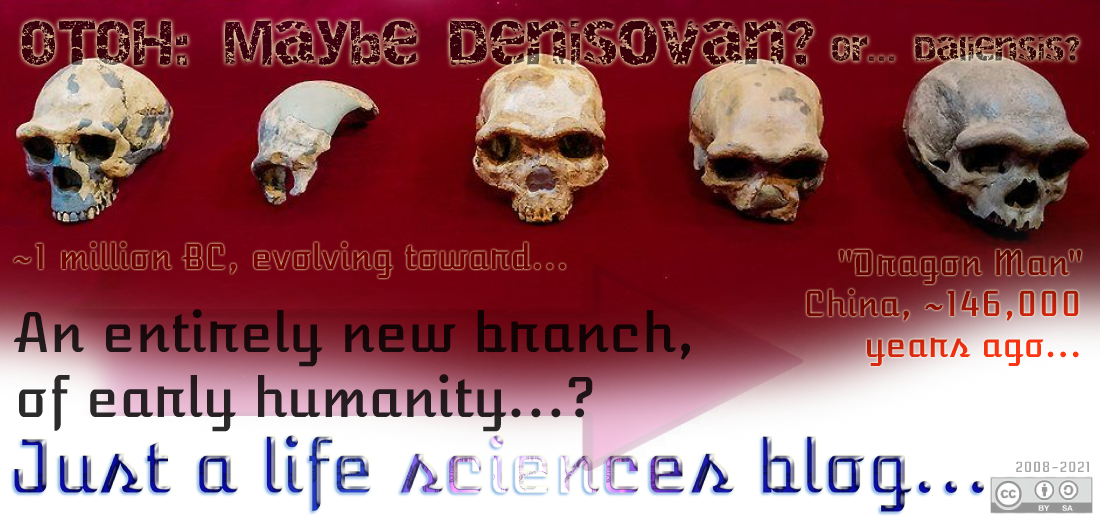The idea is that the peptides of Neanderthals and Denisovans, now available to us intact, with the advent of better DNA extraction techniques. . . might offer future pathways to solving our emerging modern DNA's resistance to many antibiotics. Here's that entertaining NPR bit -- decades off, though it may be:
. . ."We use a technique called solid phase chemical synthesis, which essentially is like little robots that allow us to make the peptides and they make one amino acid at the time and then they link them in a chain to essentially get your final peptide, which again is a tiny protein," de la Fuente explains. "And then we expose them to bacteria that we grow in the laboratory and we see whether they're able to kill clinically relevant bacteria or not."
They found several peptides that effectively killed bacteria in petri dishes, and tested them in animal models.
"In one of the mouse models, which was a skin infection model, one of the Neanderthal peptides was able to reduce the infection to levels comparable to a standard of care antibiotic called Polymyxin B," de la Fuente says.
They called it "neanderthalin-1" and, while the peptide itself is not potent enough to be an antibiotic on its own, de la Fuente says he and his team hope to use it and other peptides as templates for further study of anti-microbials. . . .
Now you know -- onward to a sunny if cool Halloween kids' walk this afternoon. Grinning ear to ear, as Jurassic Park like science fiction slowly enters real world petri dishes. . . what an amazing time to be alive!

नमस्ते

















No comments:
Post a Comment